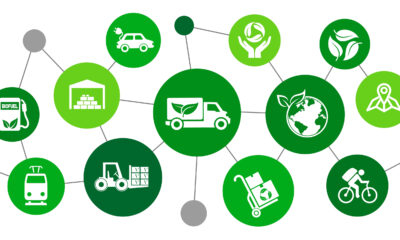

Environment
CGF Are Making Zero Deforestation Progress
The Global Canopy Programme (GCP) have published a new report called Turning collective commitment into action: Assessing progress by Consumer Goods Forum members towards achieving deforestation-free supply chains. The report finds that Consumer Goods Forum (CGF) members are winning the fight to move towards zero deforestation, but more needs to be done to completely abolish deforestation in supply-chains by 2020.
The report tracks the progress made by CGF members towards the removal of deforestation from global commodity supply chains such as palm oil, timber, beef and soya. It draws upon data from GCP’s Forest 500 and CDP’s forests program (2015 results), two initiatives collaborating to identify, assess and engage key corporations to accelerate progress towards deforestation-free commodity supply chains.
Collectively, members of the CGF hold significant power over supply chains which are driving deforestation. They therefore have significant leverage to affect the business practices of upstream companies, by putting in place and implementing robust deforestation-free procurement policies. For example, the 55 CGF members assessed in the Forest 500 control 37.3% of the cosmetics and personal care sector. The CGF’s collective 2020 zero net deforestation commitment has helped to highlight and mainstream issues.
Tom Bregman, Project Manager of Drivers of Deforestation at Global Canopy Programme, said: “The collective CGF commitment highlights current momentum around the move towards deforestation-free commodity supply chains. While many CGF members have taken action and put in place commodity-specific procurement policies, more companies still need to do so in order for the commitment to be fulfilled. Positive change can also be driven by CGF members looking beyond palm oil to mitigate risks in their other commodity supply chains – particularly soya and cattle products.”
The ‘Turning collective commitment into action’ report found that:
– 89% of 44 CGF companies disclosing to CDP’s forests program acknowledge at least one deforestation-related risk in their supply chains that has the potential to generate a substantive change in business operations, revenue or expenditure.
– Of the 55 CGF members assessed in the Forest 500, 14 companies (25% of those assessed) have made zero or zero net deforestation commitments that apply across the commodities that they procure; this is ten times higher than non-CGF companies.
– Of those companies without zero or zero net commitments across all their commodities, CGF members are also more likely to have zero or zero net deforestation commitments in place for some of the commodities that they procure.
– In the 2015 annual Forest 500 ranking, CGF members scored twice as many points as non-members.
Furthermore, 20 (50%) of the 40 companies scoring more than 60 points out of 100 on the Forest 500 ranking are CGF members, and all six companies that score more than 80 points out of 100 are CGF members.
Greater auditing of suppliers by CGF members is needed to achieve meaningful progress towards deforestation-free supply chains. For some commodities, such as soya, less than 20% of CGF manufacturers and retailers disclosing to CDP’s forests program state that they audit their suppliers, whereas for timber products the figure is 56%.
Katie McCoy, head of forests at CDP, said: “Tackling deforestation in their supply chains should be a top priority for companies concerned with future-proofing their business for the move to a low-carbon economy. Consumer Goods Forum members are in a powerful position to drive the transition to deforestation-free supply chains. Whilst it is encouraging to see that some are leveraging their power, now is the time for this commitment to be translated into concrete action across the board.”
To download a copy of the report click here.


 Environment12 months ago
Environment12 months agoAre Polymer Banknotes: an Eco-Friendly Trend or a Groundswell?

 Features11 months ago
Features11 months agoEco-Friendly Cryptocurrencies: Sustainable Investment Choices

 Features12 months ago
Features12 months agoEco-Friendly Crypto Traders Must Find the Right Exchange

 Energy11 months ago
Energy11 months agoThe Growing Role of Solar Panels in Ireland’s Energy Future




























